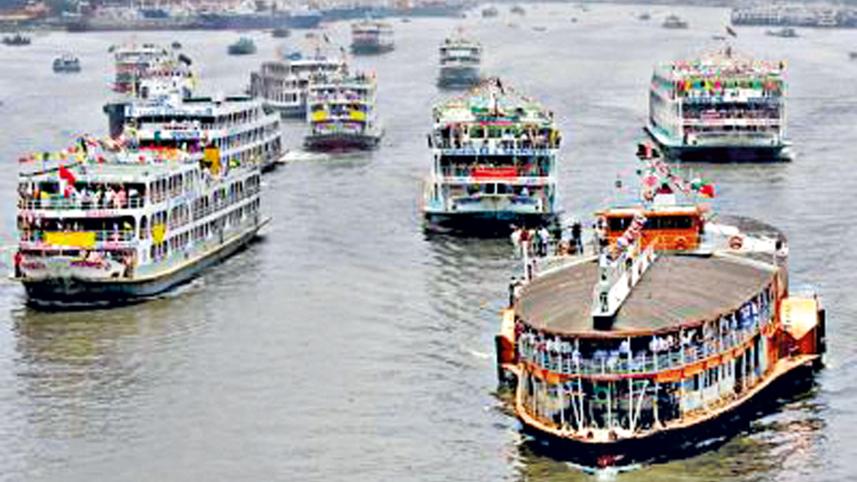Legal framework for safety on waterways

Despite that the indoor water transportation sector carries over one-fourth of the country's total passenger traffic, it faces plenty of accidents every year. The safety of this sector is overlooked, unlike the roadways. Though the Inland Water Transport Authority Ordinance, 1958 does not talk much about the safety of waterways, the Inland Shipping Ordinance, 1976 has some provisions on this.
Section 55 of the 1976 Ordinance prohibits transporting passengers on any voyage when a danger signal for a storm is announced or where there is reasonable apprehension of a storm. In the event of a violation of this section, the master of the ship faces imprisonment for a maximum of three years, or a fine of BDT 30000, or both (section 61A). However, comparatively smaller launches usually try to violate this rule, which is why we often hear the news of launches sinking due to storms or cyclones.
Section 37B confers a duty on the Director-General to conduct periodic training programs on crowd management, firefighting, personal survival, and tanker safety for inland engineers, masters, engine-drivers, greaser, and other people mainly responsible for passenger safety.
As per section 56, it is prohibited to proceed on any voyage without being equipped with life-saving apparatus, firefighting equipment, and without taking proper measures against explosions, fires, collisions, and other accidents. In the event of a violation of this provision, the owner and master of the ship will separately face imprisonment for a maximum of two years, or a fine of BDT 30000, or both (section 61). The range of punishment seems to be inadequate given the higher severity of causalities and the lives lost on the waterways. For example, around 49 people died in the recent Abhijan-10 launch incident due to the lack of sufficient firefighting equipment and proper protective measures against explosions.
Section 58A provides that no inland ship transporting passengers will embark on any voyage unless her passengers and crew are insured with an insurance company. The non-compliance of this provision will result in imprisoning the offender for a maximum of two years, or fining him/her with BDT 30000, or both (section 68B). However, there are many launch owners who are conducting business without having any insurance and are not being punished under the law.
As per section 67, if on any voyage the ship carries more passengers than the number specified in the certificate of survey, the owner or his representative or master of the ship will be punishable with a fine of BDT 300 for each passenger so in excess, up to a maximum of TK one lakh. But the launch operators defy the rule and carry excess passengers during the festival period. That is why the sinking of launches due to the overloading happens frequently in Bangladesh.
Section 47 gives jurisdiction to marine courts consisting of a magistrate of the first class to try the offences punishable under the Ordinance. There is only one Marine Court located in Dhaka. In March 2020, the Court issued a statement to the Dhaka Chief Judicial Magistrate's Court, noting that 1,517 cases were pending before it. It is quite impossible for a single Court to deal with so many cases. The 1976 Ordinance contains no provision for the Court to remand offenders on bail. Thus, offenders frequently approach other courts for bail, which closes the door for the Marine Court to proceed with the case. Another matter of concern is that the Court is being operated under the Department of Shipping, which is contradictory to the concept of separation of powers.
The year 2021 ended with the nation in deep mourning over the Abhijan-10 launch fire incident. The concerned authorities should take proper steps as early as possible, otherwise we will end up witnessing more maritime disasters every year.
The writer is a student of Law, Bangladesh University of Professionals (BUP).



 For all latest news, follow The Daily Star's Google News channel.
For all latest news, follow The Daily Star's Google News channel.
Comments